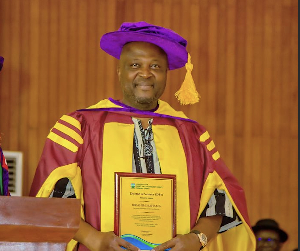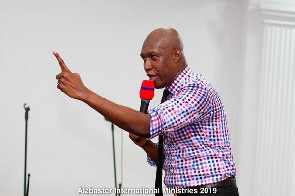The acting Director of Budget at the Ministry of Finance, Eva Esselba Mends, has said that the Ministry’s decision to put a cap on earmarked expenditure in the 2017 budget saved the country about GH¢4billion to spend on other government priority areas.
According to Ms. Mends, the decision by government provides that earmarked funds for each financial year should be equivalent to 25percent of tax revenue, from a previous situation where more than 40percent of tax revenue went to earmarked funds.
The previous revenue earmarking regime, some economists argued, made the budget rigid leaving government with little room to make discretionary expenditure.
Thus, the decision to put a cap on transfers to the earmarked funds, she said, not only brought some needed relief to government via flexibility in discretionary expenditure but also allowed the government to recoup about GH¢4billion in the process.
The Ag. Director of Budget, speaking at a pre-budget stakeholder workshop in Accra, said:“In making that decision, we saved almost GH¢4billion. That amount is savings because we would have borrowed that money to deliver government’s programmes.
So, in taking that decision to go to Parliament and pushing for the legislation to be passed, we got GH¢4billion to deliver government’s programmes and we consider that as a major accomplishment.”
Finance Minister, Ken Ofori-Atta, also speaking at the meeting, which was attended by the leadership of the banking sector as well as other business leaders, reiterated the benefits that have been accumulated by the cap on the transfers to the earmarked funds adding that: “This policy led to a reduction of government borrowing to ensure that we bring debt to sustainable levels.”
2018 and beyond
Mr. Ofori-Atta said government’s economic policy over the medium-term will aim at reducing the deficit, stabilizing the economy and placing it on the path of strong and resilient growth.
According to him, in recent years, government’s expenditure on capital expenditure has been on the decline, a situation, which he said, is not acceptable adding that measures are being put in place to normalize the situation.
“As part of the efforts to address this, we are implementing a programme of re-profiling of maturing domestic debt into longer tenor.
As a result of this exercise, we were able to save about GH¢600million on debt service payments. We have issued the first 15-year bond which is the longest tenor domestic bond ever issued in Ghana.
As I speak there is a clear manifestation of the impact of these policies result of this development, the yield curve on the domestic bond market is normalizing after years of an inverted yield curve,” he added.
The Finance Minister who is expected to present next year’s budget in November said, for 2018, in addition to all the consolidation efforts, government will take deliberate efforts to ensure that its programmes are undergirded by the United Nations Sustainable Development Goals which the President has committed to. Special attention, he said, will be given to sanitation, gender and job creation efforts.
Business News of Friday, 8 September 2017
Source: thebftonline.com













